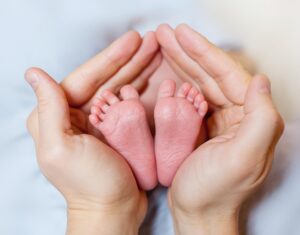
Choosing adoption is an incredibly personal and emotional decision for birthmothers. Whether you are considering adoption as an option or are in the early stages of the process, understanding the different types of adoption is essential. Open and closed adoptions are the two primary paths a birthmother can take when placing a child for adoption. Each has its benefits and challenges, and the right choice will depend on your individual circumstances, emotional needs, and long-term preferences.
This guide will help birthmothers understand the differences between open and closed adoptions, as well as the potential impact of each type of adoption on the relationship between you, the adoptive family, and the child.
What Is an Open Adoption?
An open adoption is a type of adoption where the birthmother, adoptive family, and the child have some level of contact. The degree of openness can vary widely from one case to another. In some cases, it may involve occasional updates, letters, or photos, while in others, there could be regular visits and phone calls. The key element of open adoption is communication, which can be mutually agreed upon before the adoption is finalized.
In an open adoption, the birthmother and the adoptive parents typically share identifying information, such as names and addresses, and they work together to create an arrangement that supports the child’s best interests. Open adoptions can be flexible and tailored to meet the comfort levels of all parties involved.
The Benefits of Open Adoption
One of the primary benefits of open adoption for birthmothers is the opportunity to maintain a connection with the child. Many birthmothers find it comforting to know how their child is doing as they grow up. Being able to witness the child’s development and happiness in their adoptive family can help provide emotional closure. For some birthmothers, this ongoing connection can help ease the pain of separation, as they are reassured that their child is thriving.
Open adoption also allows birthmothers to provide the child and adoptive parents with valuable information, such as family medical history or cultural background. This can play a crucial role in the child’s well-being and sense of identity. Additionally, open communication between the birthmother and adoptive family fosters trust, helping everyone involved navigate the complexities of the adoption process.
What Is a Closed Adoption?
In a closed adoption, there is no contact between the birthmother and the adoptive family after the adoption is finalized. Typically, identifying information, such as names and addresses, is not shared between the parties. Once the adoption is complete, the birthmother has little to no access to information about the child or the adoptive family, and the child may not be able to access information about their birth family until they are an adult.
Closed adoptions were once the most common type of adoption, but in recent years, open adoptions have become more popular due to their transparency and the emotional benefits they offer to all parties involved.
The Benefits of Closed Adoption
For some birthmothers, the privacy and emotional distance offered by closed adoption are appealing. Closed adoption allows birthmothers to move forward with their lives without the ongoing reminders of their decision. This can help birthmothers achieve a sense of closure and finality.
Additionally, closed adoption provides a clear emotional break for the birthmother, as they do not have to navigate the complexities of maintaining a relationship with the adoptive family or child. This distance can sometimes make it easier to heal from the emotional experience of placing a child for adoption.
Choosing Between Open and Closed Adoption
The decision between open and closed adoption is a deeply personal one. Birthmothers need to reflect on their emotional needs, their long-term desires for contact with the child, and how much involvement they want to maintain in the child’s life. Working with an adoption agency or attorney can help birthmothers understand the legal and emotional implications of each option and ensure that the process goes as smoothly as possible.
Both open and closed adoptions offer different opportunities and challenges, and the right choice depends on the birthmother’s unique situation. Regardless of which type of adoption you choose, it’s essential to prioritize the best interests of the child while also considering your emotional well-being.
Contact us today to learn more about your options.



